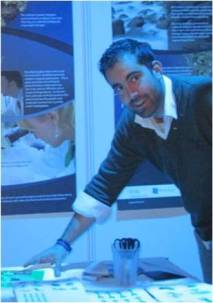Before starting my second blog, let me just wish you a very happy new year with desires that the economy leaves us a bit less  depressed this year…
depressed this year…
On my first blog I discussed some of the issues science education faces, framing them in the challenges that education itself, in general, faces. Today I want to narrow the focus and share with the reader what is being portrayed as happening in science education in the primary level.
More and more studies are now showing that for the majority of students at the end of the primary cycle, science is already out of the table as a future. This has lead to an increase of interest in how science is taught and learned in the primary cycle. The much cited European Union Rocard report has considered the primary level science as the time to not lose the students for science.
The Australian example, which also has six years of primary cycle and in which the curriculum has decades of existence, can be a good one to look to try and understand if the Irish reality is an isolated one. What they are saying is also not that positive. In a recent report, it is recognized that the implementation in schools of a Science curriculum in the primary level is not an easy challenge. It is admitted that despite some decades of mandating science in the primary school curriculum, and of state and national projects focused on curriculum resources and/or on teacher professional development, coherent science programs at the primary school level still tend to be the exception to the rule. The reasons advanced for this are the above mentioned ones: lack of confidence, preparation; other subjects like literacy and numeracy have higher priority not leaving time for science; equipment is seen as time consuming and difficult to organize.
So the problem is identified and one can see it is not exclusive to Ireland. And so, what about solutions? The long term one has to do with supporting teacher professional learning and changing the school systems. But this is recognized as difficult and with results only on the long run. The more immediate one has to do with what will be theme to the third blog: science outreach: the role that community organizations and universities can and are starting to have in the primary level science education!
Note: If you would like any of the references regarding what I mention in the text please don’t hesitate to contact me
View all blogs by Diogo Gomes
 depressed this year…
depressed this year…